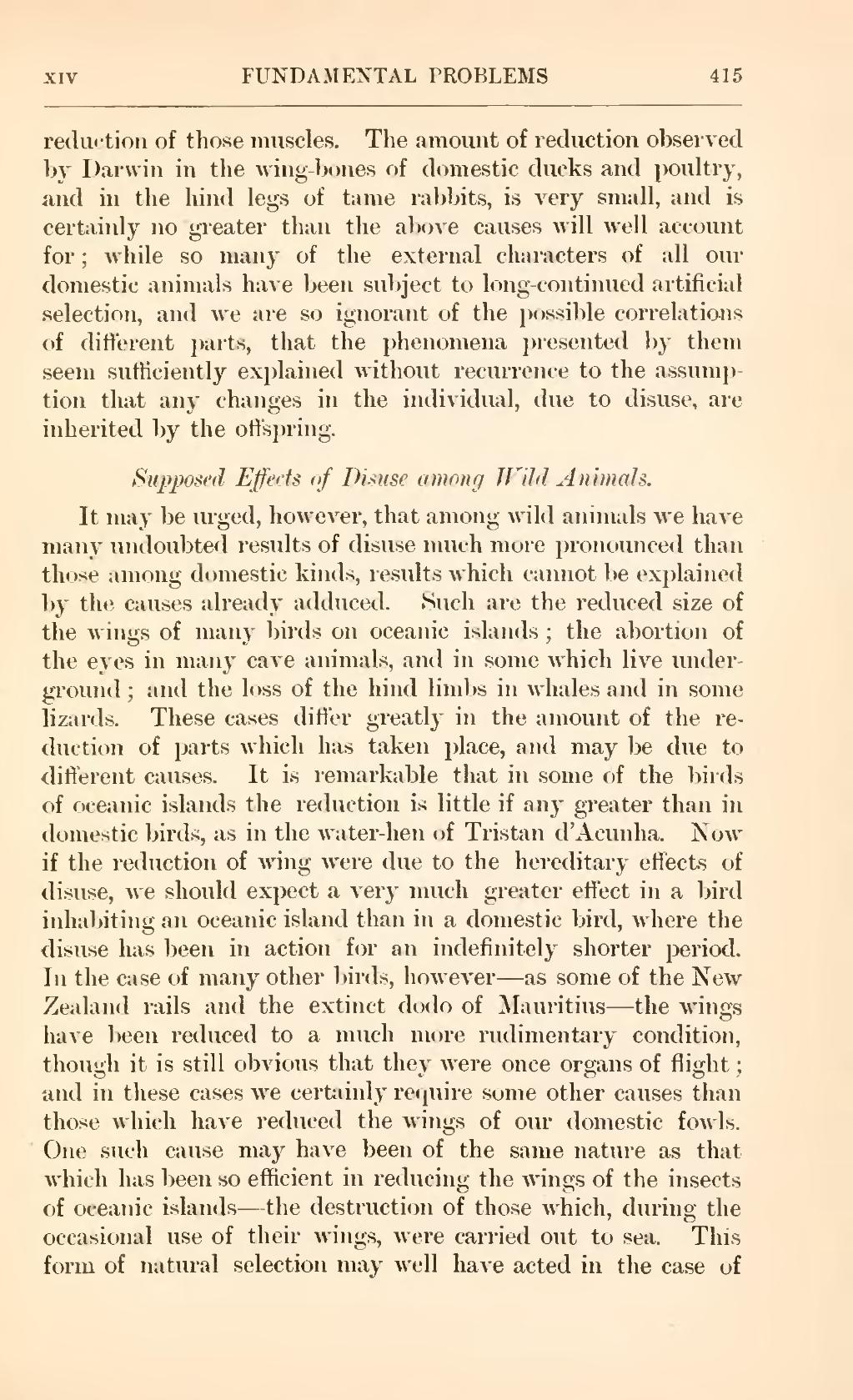reduction of those muscles. The amount of reduction observed by Darwin in the wing-bones of domestic ducks and poultry, and in the hind legs of tame rabbits, is very small, and is certainly no greater than the above causes will well account for; while so many of the external characters of all our domestic animals have been subject to long-continued artificial selection, and we are so ignorant of the possible correlations of different parts, that the phenomena presented by them seem sufficiently explained without recurrence to the assumption that any changes in the individual, due to disuse, are inherited by the offspring.
Supposed Effects of Disuse among Wild Animals.
It may be urged, however, that among wild animals we have many undoubted results of disuse much more pronounced than those among domestic kinds, results which cannot be explained by the causes already adduced. Such are the reduced size of the wings of many birds on oceanic islands; the abortion of the eyes in many cave animals, and in some which live underground; and the loss of the hind limbs in whales and in some lizards. These cases differ greatly in the amount of the reduction of parts which has taken place, and may be due to different causes. It is remarkable that in some of the birds of oceanic islands the reduction is little if at all greater than in domestic birds, as in the water-hen of Tristan d'Acunha. Now if the reduction of wing were due to the hereditary effects of disuse, we should expect a very much greater effect in a bird inhabiting an oceanic island than in a domestic bird, where the disuse has been in action for an indefinitely shorter period. In the case of many other birds, however—as some of the New Zealand rails and the extinct dodo of Mauritius—the wings have been reduced to a much more rudimentary condition, though it is still obvious that they were once organs of flight; and in these cases we certainly require some other causes than those which have reduced the wings of our domestic fowls. One such cause may have been of the same nature as that which has been so efficient in reducing the wings of the insects of oceanic islands—the destruction of those which, during the occasional use of their wings, were carried out to sea. This form of natural selection may well have acted in the case of
